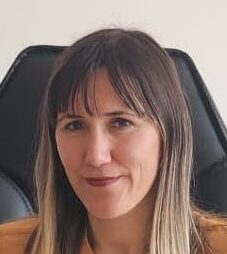Digital teaching methods have revolutionised higher education by increasing accessibility, interactivity and personalised learning. The advent of digital technologies has had a significant impact on all sectors, including education. Higher education institutions have increasingly adopted digital teaching methods to meet the evolving needs of students and to harness the potential of technology to improve educational outcomes. This paper provides an detailed analysis of the different digital teaching methods used in higher education, and future directions.
- Online Courses: Online courses are educational programs delivered entirely over the internet. They have become a cornerstone of digital education, offering flexibility and accessibility to a diverse range of students. Some examples are: For Massive Open Online Courses (MOOCs), platforms such as Coursera, edX, and Udacity offer a wide range of courses from leading universities and organizations. The Learning Management Systems (LMS), such as Blackboard, Moodle, and Canvas facilitate course management, content delivery, and communication between students and instructors.
- Blended Learning: Blended learning combines traditional face-to-face instruction with online learning activities, offering a hybrid approach to education. Some examples are: In the flipped classroom, students review lecture material online and engage in interactive activities during face-to-face class sessions. In the rotational model, students rotate between online and face-to-face learning stations on a scheduled basis.
- Virtual Classrooms: Virtual classrooms use video conferencing and other digital tools to create a real-time online learning environment. Examples include Zoom, Microsoft Teams, and Google Meet.
- Digital Assessments: Digital assessments include online quizzes, exams, and other evaluation methods conducted through digital platforms. Examples include Quizlet, Kahoot!, and ProctorU.
- Artificial Intelligence and Data Analytics: AI and data analytics are transforming education, providing personalised learning experiences and insights into student performance. Some examples are: AI-powered platforms such as DreamBox and Knewton customize content based on individual student needs and learning styles. Institutions use data analytics to predict student outcomes and identify those at risk of falling behind. AI-powered chatbots provide 24/7 support for students, answering questions and offering assistance.
Future Trends
- Gamification: Gamification involves incorporating game elements into the learning process to enhance engagement and motivation. Future trends include the development of more sophisticated educational games and simulations.
- Virtual and Augmented Reality (VR/AR): VR and AR technologies offer immersive learning experiences that can enhance understanding and retention of complex concepts. Their use in higher education is expected to grow, particularly in fields like medicine, engineering, and architecture.
- Blockchain Technology: Blockchain technology can improve the security and transparency of academic records and credentials. It offers a tamper-proof way to verify educational achievements and certifications.
- Micronauczanie: Microlearning polega na dostarczaniu treści w małych, łatwych do zarządzania fragmentach. Takie podejście wychodzi naprzeciw preferencjom współczesnych uczniów w zakresie krótkich, skoncentrowanych sesji edukacyjnych i oczekuje się, że stanie się bardziej powszechne w szkolnictwie wyższym.
Conclusion, digital teaching methods are transforming higher education by making it more accessible, interactive, and personalized. As technology continues to evolve, higher education institutions must adapt and innovate to harness the full potential of digital teaching methods, ensuring that they meet the diverse needs of students and prepare them for the future.

Dr Nurten Terkes ukończyła studia magisterskie i doktoranckie na Uniwersytecie Akdeniz w Antalyi. Tytuł profesora nadzwyczajnego uzyskała w 2023 roku. Specjalizuje się w opiece zdrowotnej, ekonomice zdrowia i technologiach edukacyjnych. Dr Terkes brała udział w licznych krajowych i międzynarodowych badaniach naukowych i jest recenzentem w różnych czasopismach naukowych. Obecnie kontynuuje naukę na Uniwersytecie Burdur Mehmet Akif Ersoy w Turcji.
